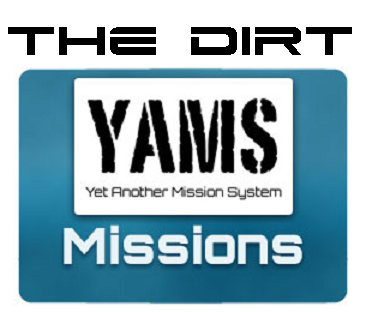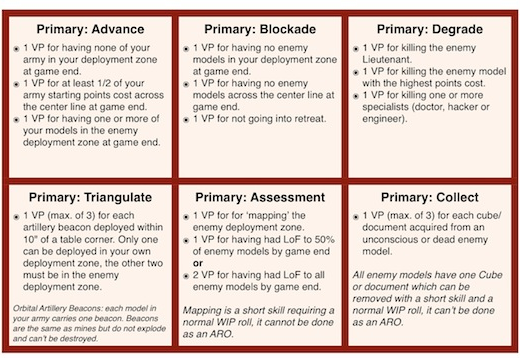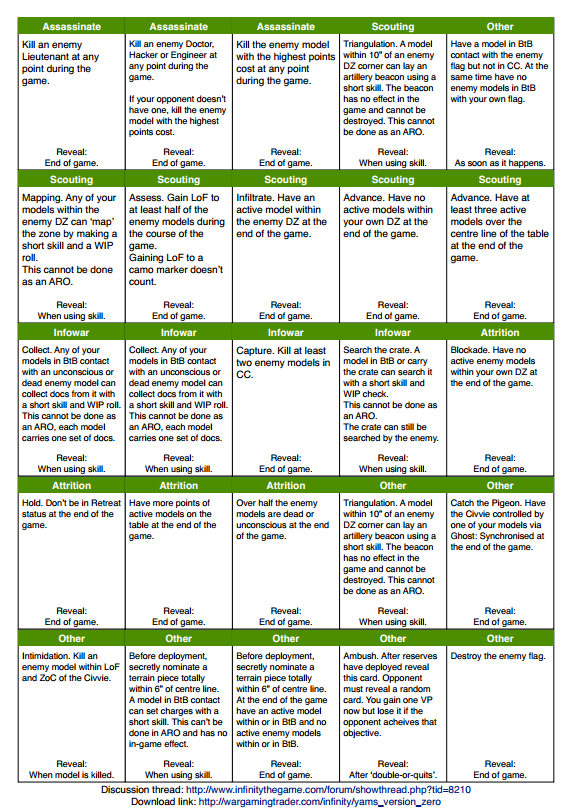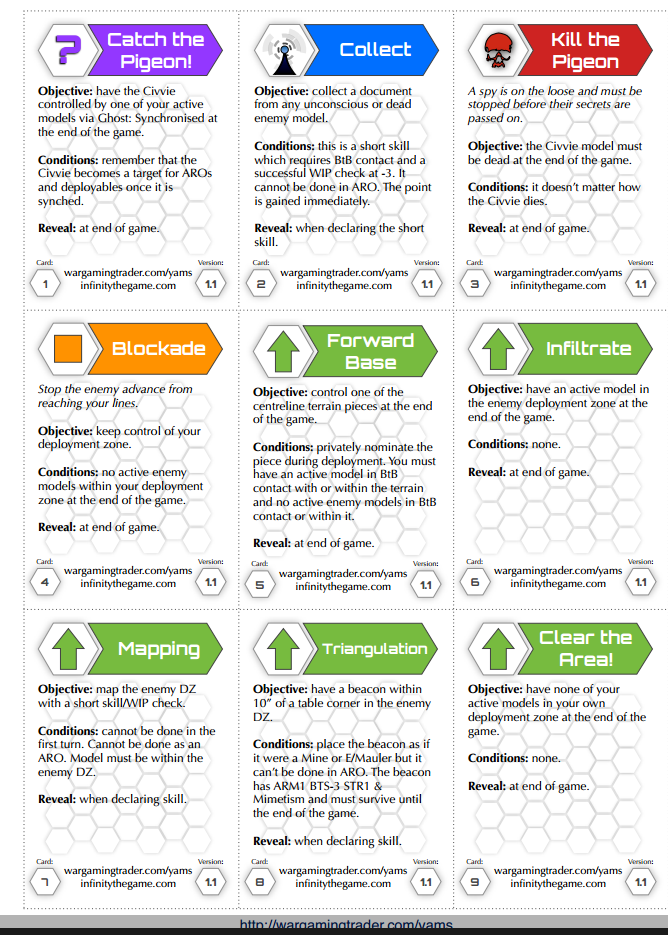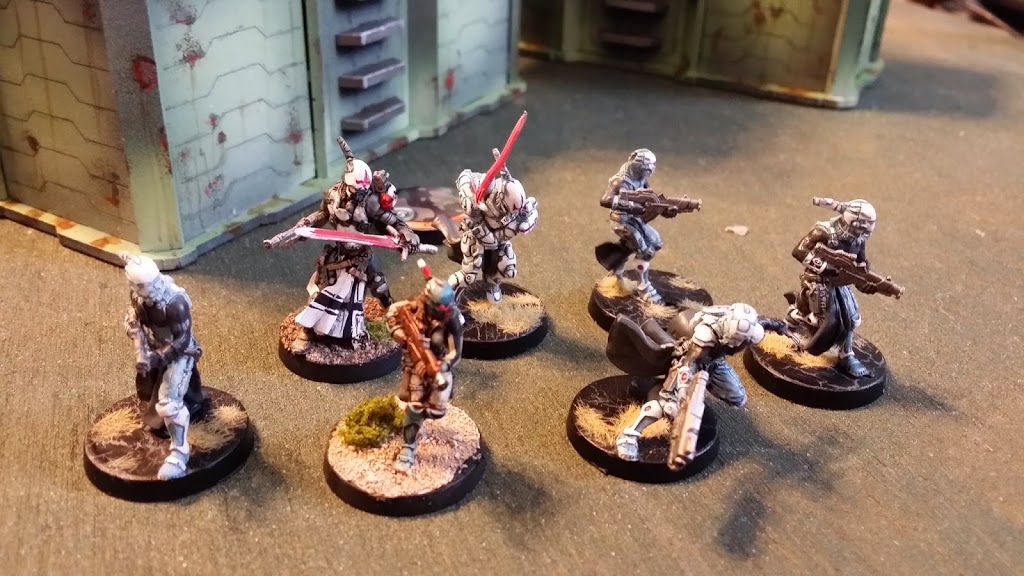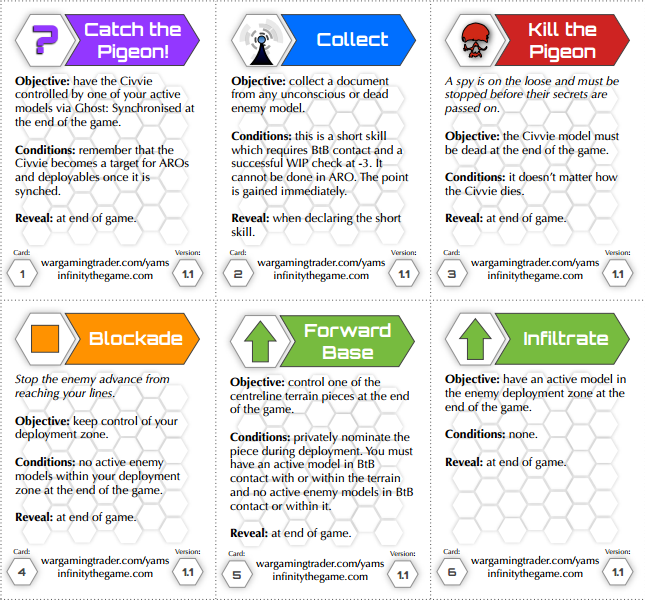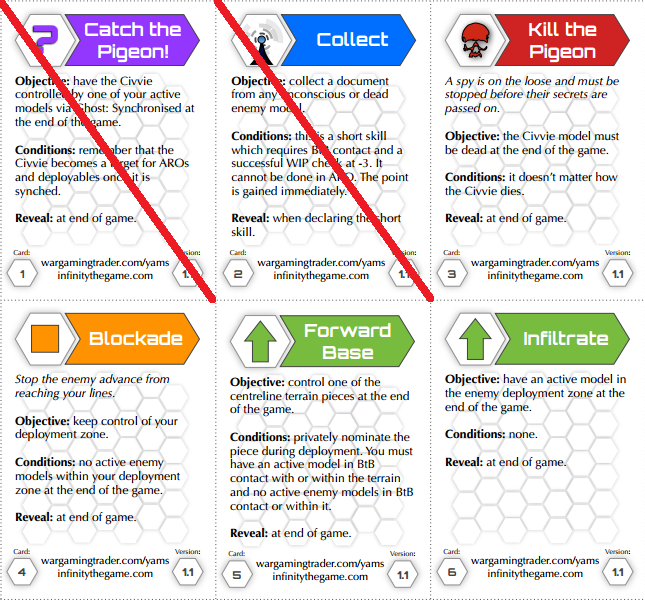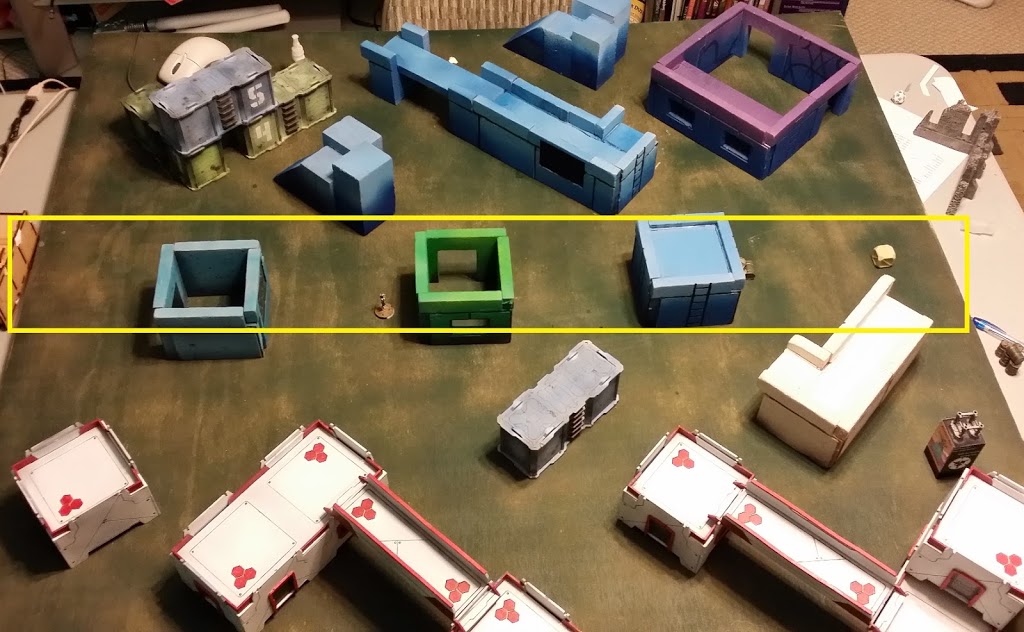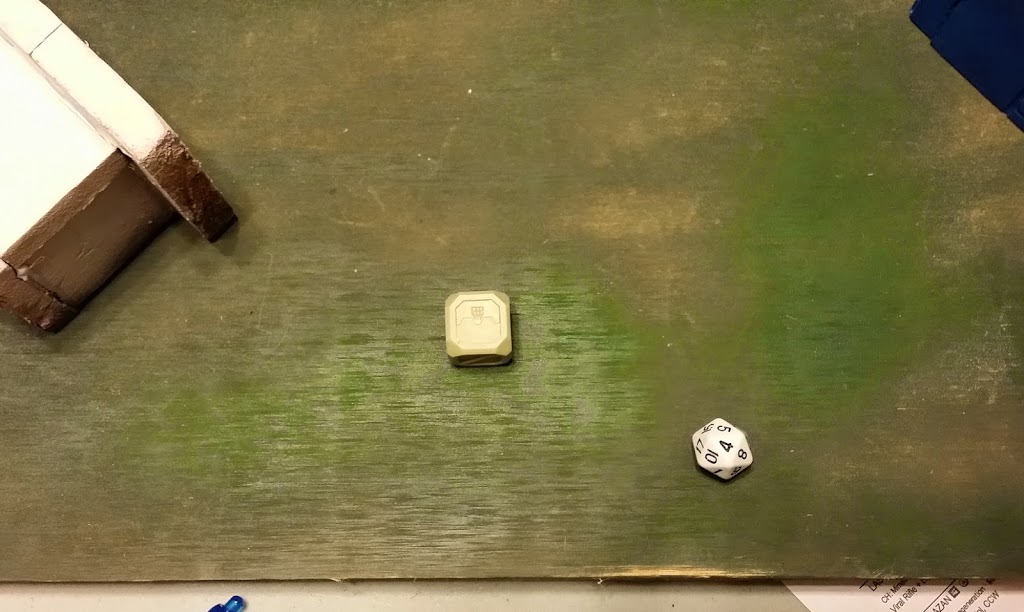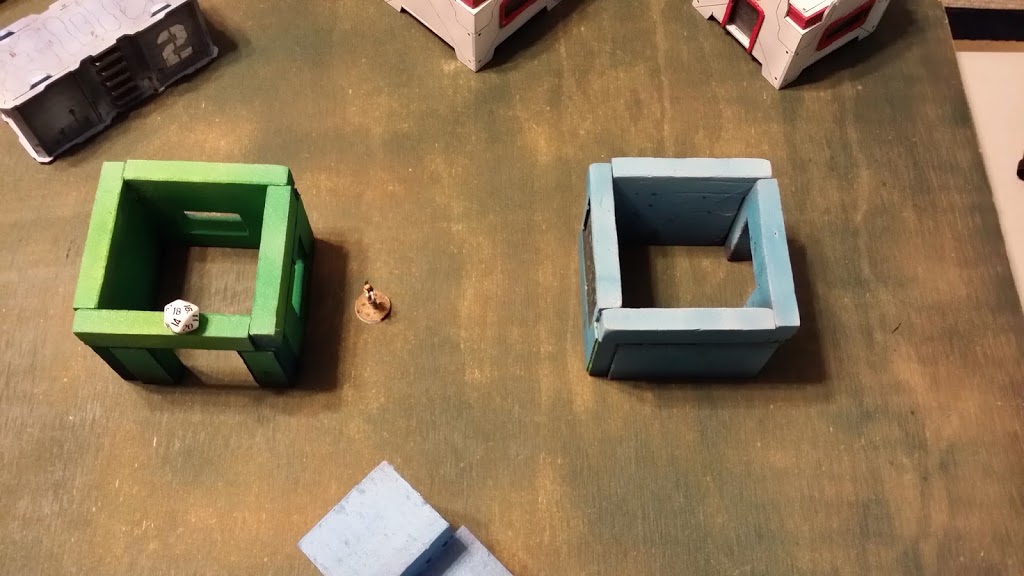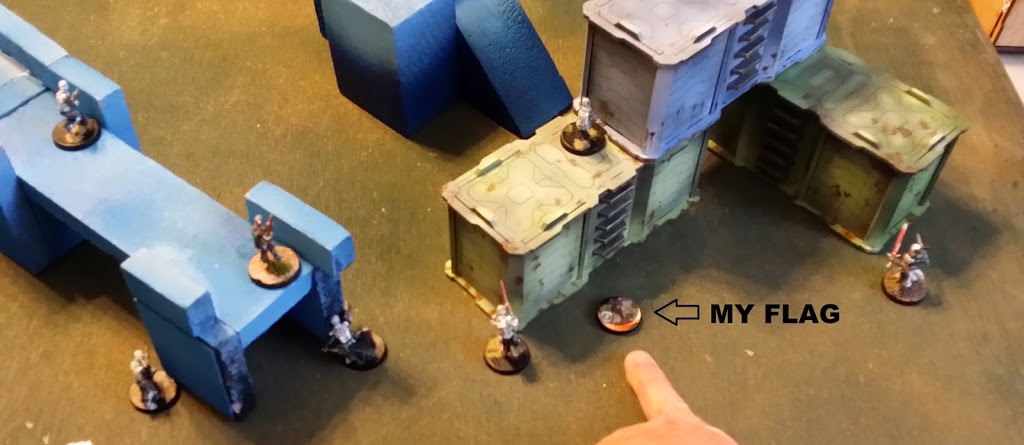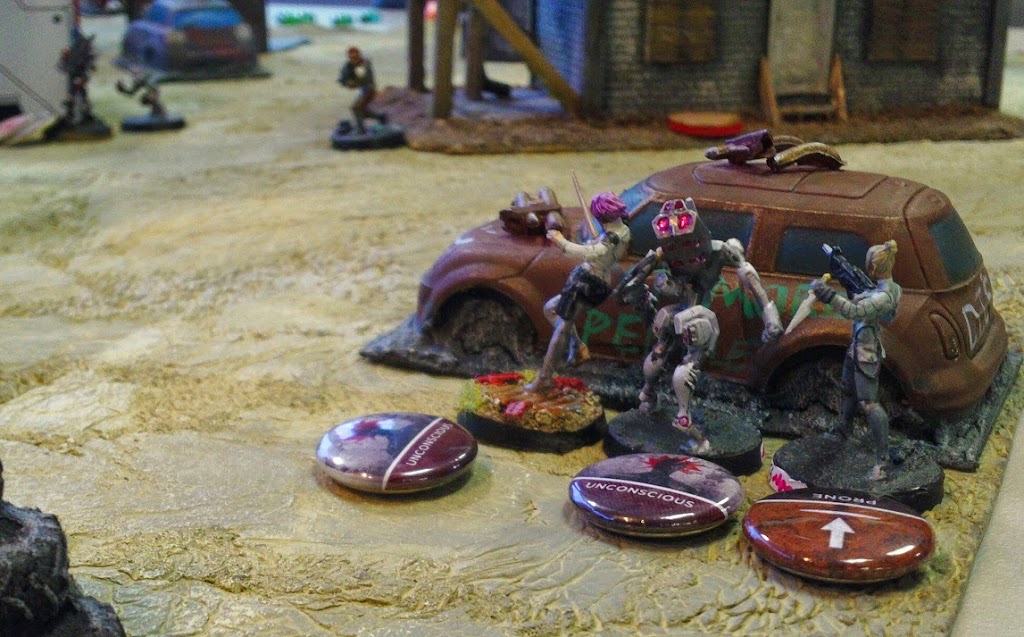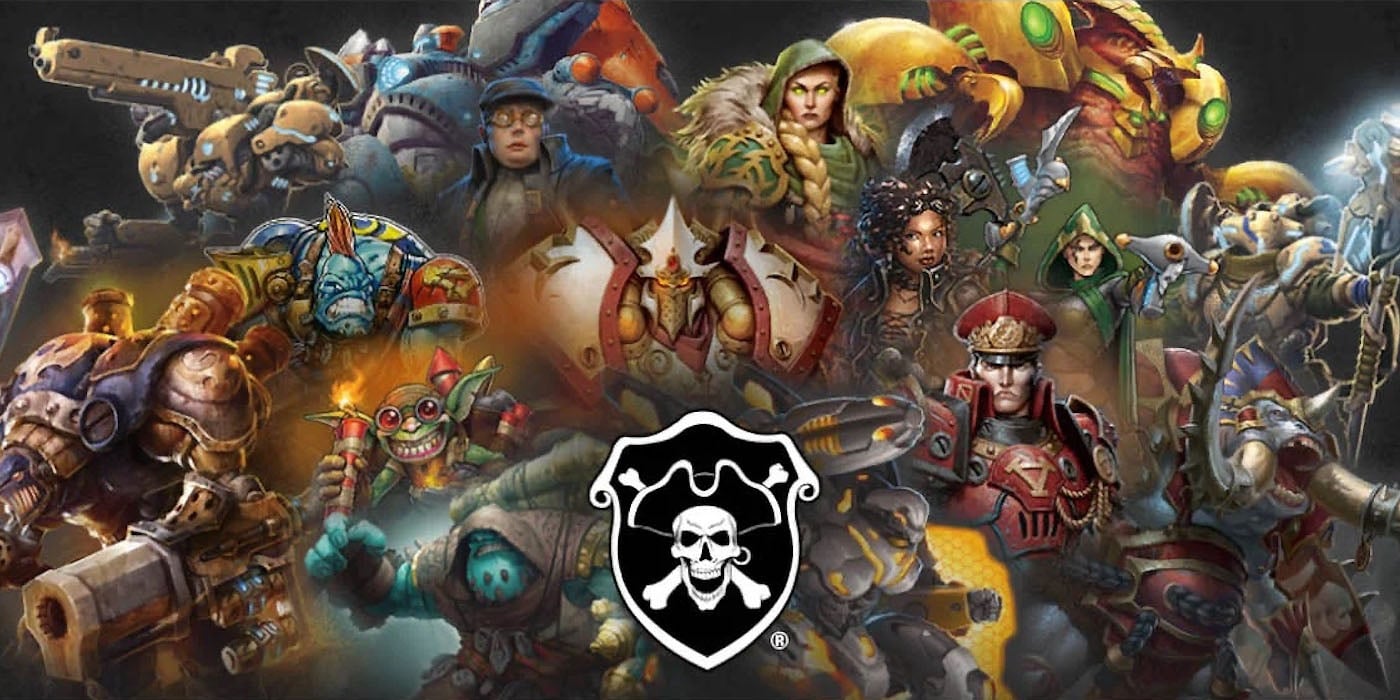The DIRT – YAMS: Yet Another Way to Enjoy Infinity
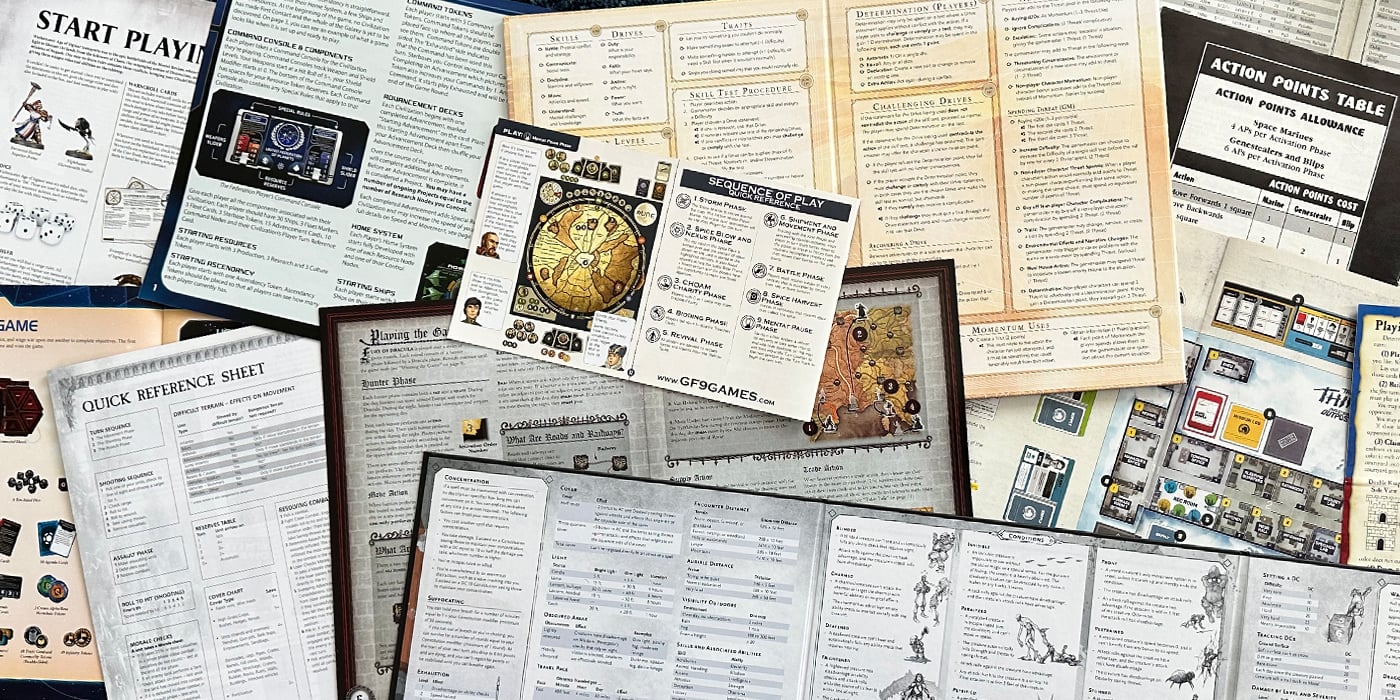
So you feel like you’ve enjoyed playing every type of Infinity game. Have you tried YAMS? No? Then you’ve just scratched the surface.
I’m in the process of running my final 2nd edition slow grow league for Infinity. We’re going back to the roots of the game and running it from 100 points to 200 points. For new players, a 200 point mission based ITS tournament is a tall order. One that tends to turn most players into “hunt the other team’s specialists, so they can’t claim objectives”. This isn’t the mindset I want to put new players in, it’s a little too cut throat when the goal of the slow grow should be cementing the rules of Infinity in their mind.
I could create a series of new player friendly missions like I did for my dynamic story driven event. But why not take advantage of a system that has objective missions built-in and removes the need for specialists at 200 point tournament levels? And so I turn to YAMS.
The News – What is YAMS?
YAMS stands for Yet Another Mission System and was developed by Ian Wood as a card based random mission generator for Infinity. YAMS got it’s start prior to ITS missions and Campaign:Paradiso. The complete nature of the system: it’s low mandatory scenery elements, straight forward rules design (cards take up 3 pages, additional rules 2 pages), and the simple fact that it’s free has made it easy for YAMS to be propelled as a pretty successful tournament alternative.
Before I get too far ahead of myself. If you’re ready to jump in and take a look at the YAMS, the most recent version can be found on the Wargaming Trader site.
The Skinny – Versions
The current version of YAMS is in its second official version, but I figure I’d give a quick timeline of the YAMS genesis.
Mission Roulette
Download Link
Mission Roulette had 6 cards that would act as both a primary and secondary mission objectives. Players would shuffle both their primary and secondary decks of missions. If both missions were identical, the player would select a different secondary mission. Incredibly straight forward and a nice diversion away from standard “defeat the other team” games. However, since it was limited to 6 cards, the amount of variation felt in games was limited.
YAMS Alpha
Download Link
The Alpha Rules for YAMS introduced a bunch of new concepts. These included the addition of a Civvie, a Crate, center line of terrain, as well as team flags deployed in each team’s deployment zone. Mission ideas brought over from Mission Roulette were carved up into their various parts. This provided each player with so many mission opportunities that it was difficult for opponents to deduce immediately what their enemy was attempting to do. And with objectives being easier to obtain (because they did not have multiple parts), YAMS was able to add a “double or nothing” feature. You let your opponent know WHAT you had to accomplish for one of your multiple missions, and it was worth 2 Victory Points instead of 1.
YAMS Current (1.1 at time of writing this article)
Download Link
I had a chance to talk to Ian and there are some things he would like to add to a future version of YAMS. First of all, he would like to provide localization. By this I mean that there would be multiple sets of cards for various languages. Second, he was wondering if there would need to be an update to the system once 3rd edition is out. This would be less likely an issue of YAMS being incompatible with 3rd edition in its current state. Instead it’s more about opportunities for new objectives based on rules that did not exist in 2nd edition Infinity.
The DiRT – A YAMS Example.
Since there is a chance that the YAMS system might change in the future, I was given permission to host the 1.1 version of the file from Ian. That way, the example below could always be recreated if you would like to try it.
Download YAMS Version 1.1
So let’s run through the set up of a YAMS game. I will be running my 150 point Military Orders list.
Step 1 – Both you and your opponent should shuffle your respective deck of YAMS cards and deal 6 cards to yourself. For this example, I will say that I was dealt the following cards. Clearly, I did not shuffle the deck very well since I ended up with the first six cards of the deck!
Step 3 – Set up initial terrain.
One thing to notice about this board is that Yams expects (and has missions based on center line terrain. To assist visually with this, only the center line terrain on this board is not set on a diagonal to the board edges. The facing of the terrain is not a requirement, only the existence of terrain on the center line. Really, this step could have been done before cards were selected, but it’s important to choose your 4 cards BEFORE you add the crate and the Civvie to the board.
Step 4 – Roll Lt WIP face-to-face roll to determine who goes first and deployment order. The player that chooses to decide deployment options is the player who adds the crate and the Civvie to the board. This is important as it can influence the direction the Civvie is facing.
Step 5 – Introduce a crate
Roll a d20, that’s the number of inches of one side of the table edge (along the center line of the board to place the crate.
Step 6 – Introduce a Civilian
Similar to the crate, roll a d20 and place the civilian that many inches from the table edge. The Crate and Civvie should measure in from opposite edges.
Step 7 – Each player deploys their forces (according to the LT face-to-face WIP roll order). When forces are deployed it’s important that no model be deployed within 8″ of the civvie or crate. It’s also important to remember to place a camo token in your deployment zone. This camo token represents your “Flag” in the game.
Step 9 – Play the game. You have at max 4 turns, go!
Even More Variance
We demonstrated running YAMS as it was described with two decks (one per player), but you can also add all sorts of minor variants to change things up:
- Ensure no duplicated goals by playing YAMS with only one deck for both players.
- To make the game easier: Give players 8 cards and let them just choose 4.
- To make the game harder: Force players to keep all 6 cards that they get.
- For smaller point games: Only keep 3 of the 6 mission cards and/or eliminate retreat scenarios.
- YAMS allows for 4 turns (on a standard 4 x 4 board), ITS games only allow for 3 turns, so get started on objectives earlier in ITS.
- ITS does not allow every model to complete missions, don’t starve your army list of specialist troops.
- The randomness of YAMS cards means you can’t really prepare for what the game will be like. With ITS, the majority of the victory points are written out clearly and in ITS those objectives are mutually exclusive. There can be only one (army to get the points)!

